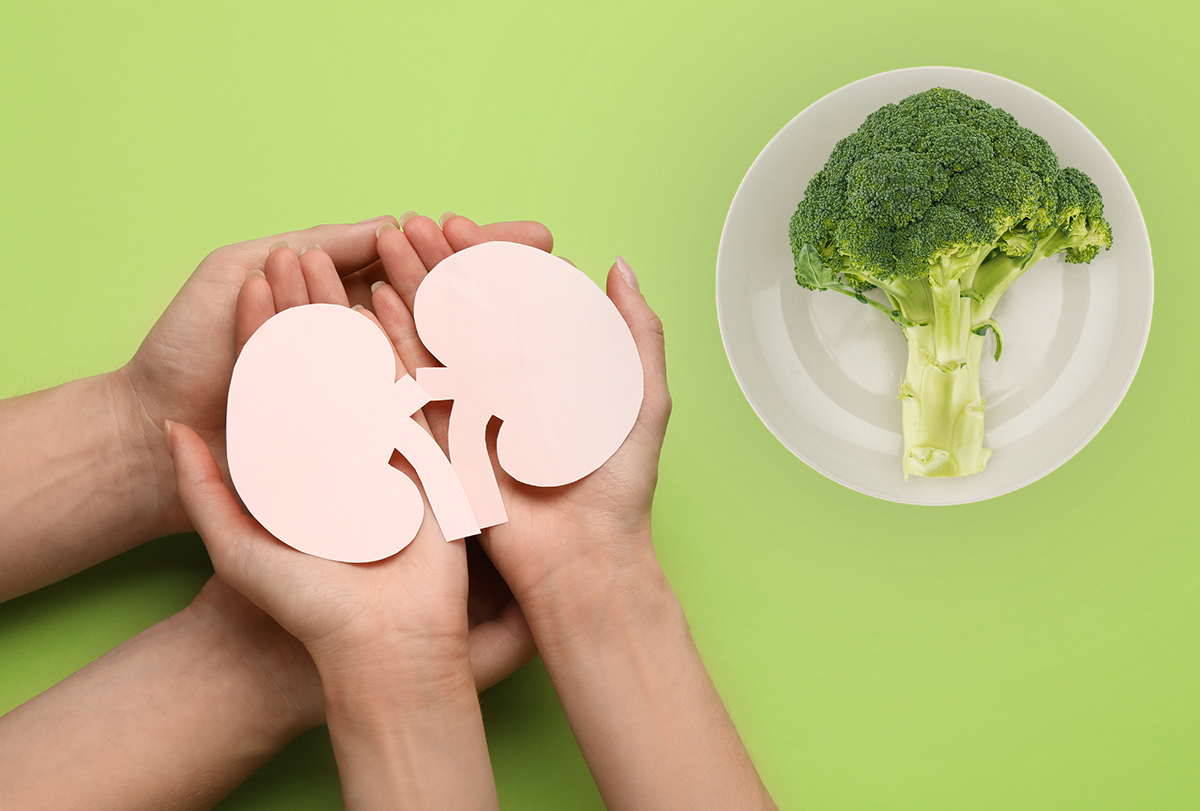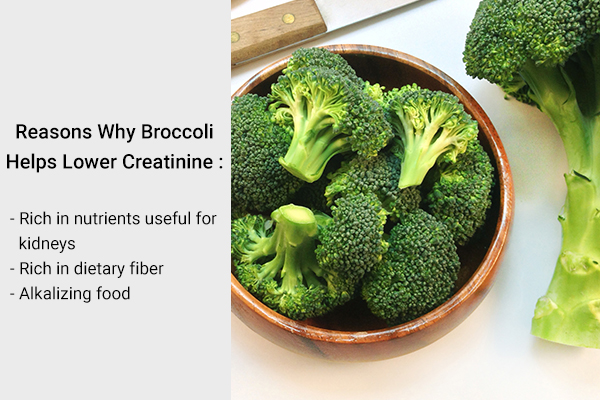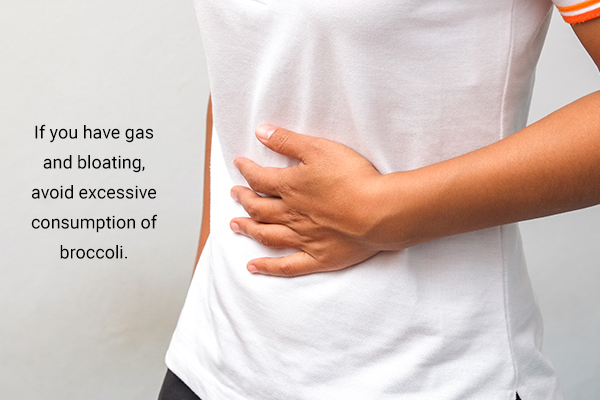In this article:
Broccoli is a popular vegetable consumed for its many health benefits. It is rich in vitamins A, C, and K, glucosinolates, isothiocyanates, folate, fiber, and essential minerals that offer protection against heart diseases, aid in weight management, and even reduce the risk of cancer. (1)

But did you know broccoli is a good food choice for your kidney health too? Yes! Broccoli can actually be useful in lowering levels of creatinine as well as in aiding its clearance from the body.
What Is Creatinine?
Kidney health is measured by some biomarkers that include creatinine levels in the urine.
When proteins, especially meat, in the diet break down, creatinine levels rise in the blood. This rises also happens when creatinine phosphate, which acts as an energy reserve, breaks down in the muscle. (2)
Usually, in a healthy individual, creatinine is removed from the body via urine, but in conditions such as acute kidney failure or chronic kidney disease, creatinine levels in the blood can increase.
Other causes of the high creatinine levels in the blood include: (2)
- Unmanaged diabetes
- Hypertension
How Can Broccoli Help Lower Creatinine?

Broccoli can help in lowering the level of creatinine in the following ways.
1. Rich in nutrients useful for the kidneys
Broccoli is a good source of vitamin K, with 100 g of the vegetable providing 102 mcg of vitamin K. (3)
Recent studies have identified the importance of vitamin K in slowing the progression of kidney disease. Vitamin K deficiency lowered the ability of the kidney to clear out creatinine from the body, leading to a rise in its level. (4)
In addition, animal studies have found the sulforaphanes found in broccoli were effective in delaying the rise of creatinine in the blood. (5)
Therefore, broccoli can be a kidney-friendly food.
2. Rich in dietary fiber
Just 100 g of raw broccoli contains 3 g of fiber, which makes it a fiber-rich food. (3) Multiple studies over the years have concluded that a diet rich in fiber is useful in lowering creatinine levels in the blood.
A study proved this when people with chronic kidney disease were fed a diet high in fiber. They experienced an improvement in their glomerular filtration rate, which is the kidney’s ability to filter out waste products from the blood. In addition, a reduction in the levels of creatinine in these patients was observed. (6)
3. Is an alkalizing food
Broccoli along with other vegetables can comprise what is gaining fame as the alkaline diet. The idea behind it is that some foods (such as vegetables) produce an alkaline end product that has a protective effect on the kidneys.
Alkaline diets have been found to improve kidney health and reduce the levels of creatinine in the long term. (7)
Precautions to Consider
Chronic kidney disease or acute kidney failure is a sensitive condition that requires extreme care. This article is meant to educate and not be taken as the solution to treating any illnesses.
Please consult a doctor and a dietitian to help you identify the best dietary approach for your needs.
Most-Asked Questions
Who should avoid broccoli?

If you have gas and bloating, avoid excessive consumption of broccoli. You can have 1–2 servings a day. Furthermore, if you have hypothyroidism, avoid consuming broccoli raw.
Should I worry if my creatinine level is high?
High creatinine levels may be an indicator of kidney disorder. When the kidney doesn’t function well, it can’t clear creatinine via the urine, causing it to rise in the blood. It may also be high during fever or a state of dehydration.
Therefore, it is important to consult your doctor immediately when your blood reports show high creatinine levels. (8)
What is the main cause of high creatinine levels?
The main cause of high creatinine levels is impaired kidney function. However, the kidneys need to lose about 50% of their function for creatinine to get significantly high.
Infection, acute fever, or dehydration can also lead to high creatinine levels. (8)
What is the normal range of creatinine levels?
Creatinine levels vary from person to person based on age, gender, and health. In a healthy adult man, the normal creatinine levels should be 0.6–1.2 mg/dL, and for healthy women, it should be 0.5–1.1 mg/dL. (2)
Practical Takeaways
- Broccoli is a food rich in many nutrients that help kidney health.
- Creatinine is normally produced in the body when dietary meats are broken down. In a healthy kidney, it is removed from the body via urine. However, in kidney diseases, this capacity is reduced and creatinine can increase in the blood. Unmanaged diabetes and hypertension can also raise creatinine levels.
- Broccoli contains sulforaphane and vitamin K, which are useful in reducing and clearing creatinine from the blood.
- Dietary fiber such as that from broccoli can also lower levels of creatinine by improving the ability of the kidneys to filter it out properly.
- Broccoli also produces an alkaline end product after digestion, and an alkaline diet has been hypothesized as a kidney-protective diet and, in the long run, can help reduce creatinine levels in the blood.
- Was this article helpful?
- YES, THANKS!NOT REALLY


